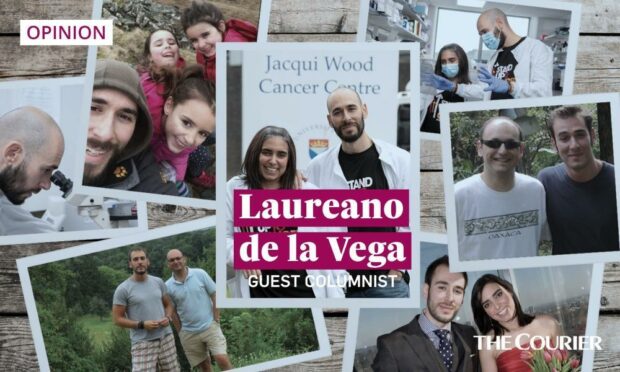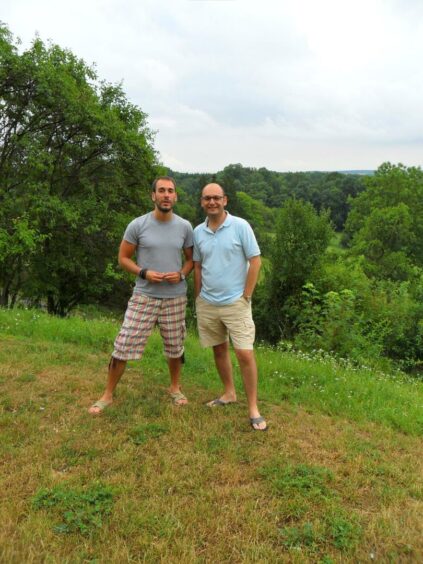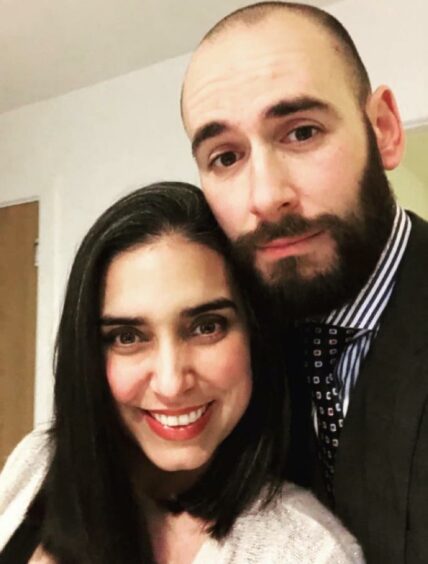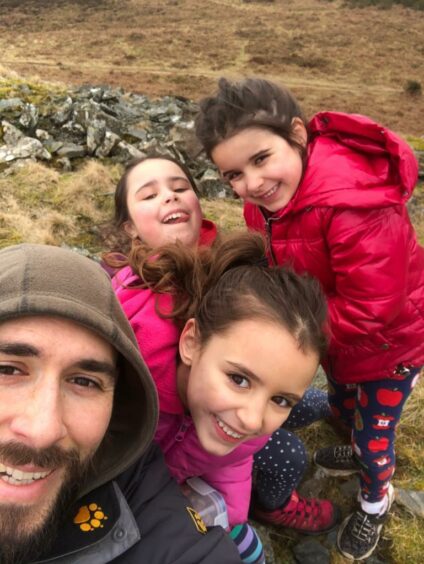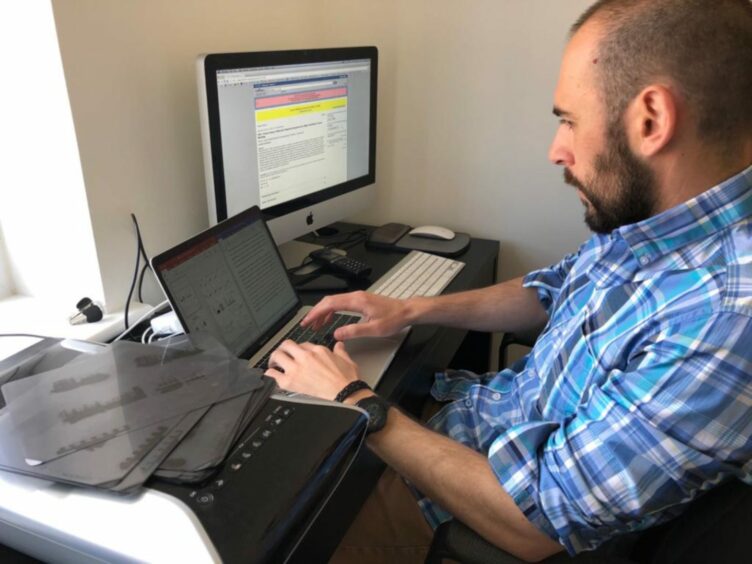As a cancer scientist, to have a ‘eureka moment’ is the dream. To one day have a breakthrough and discover an effective, lifesaving treatment.
Of course, I don’t know if this will happen. But cancer survival has doubled in the last 40 years, thanks to research that’s led to better and kinder treatments.
This gives me hope and determination.
Admittedly it hasn’t always been easy to keep sight of the prize – that the work we do in the lab can translate to helping people with cancer.
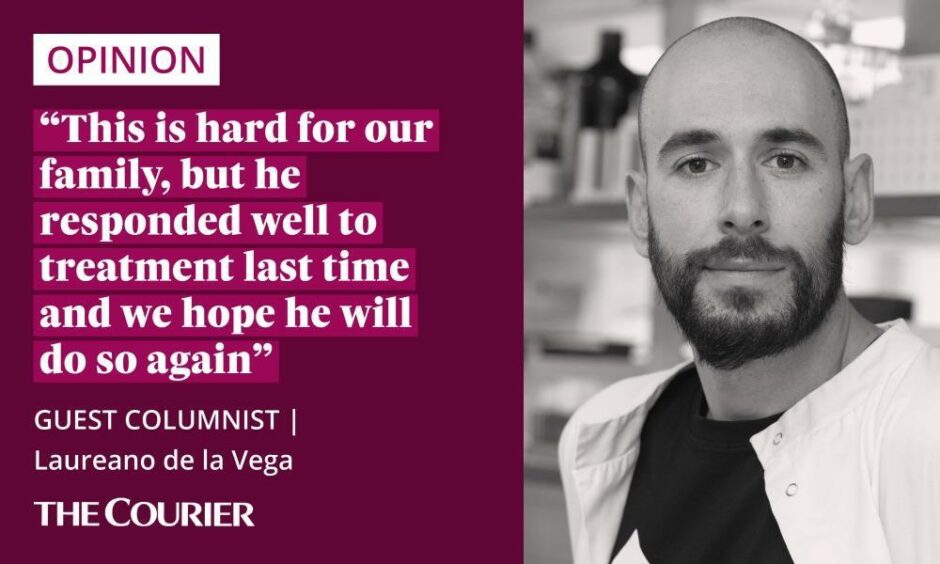
When you spend all day focused on numbers and graphs, it’s possible to lose focus on the fact that the data represents people and their experience.
If the line on the graph drops, it means someone has died. If the line remains steady, they’ve survived.
In recent times, all of this has been brought into sharp focus for me.
The devastating impact that cancer can have has come very close to home.
Cancer in my family
Around eight years ago, my mum had surgery after being diagnosed with kidney cancer.
She now just has one kidney and thankfully has recovered well.
Then just two weeks ago, my big brother Gerardo started chemotherapy after the cancer in his adrenal glands returned.
He was first diagnosed with cancer two years ago when, during a routine check-up, doctors found a tumour.
The prognosis wasn’t great but doctors removed the tumour. He got treatment and he got better.
But now a month ago he found out that the cancer was back and was growing again and so he’s receiving chemo.
This is hard for our family, but he responded well to treatment last time and we hope he will do so again.
Family matters, in Spain and Dundee
Gerardo and I grew up in Huelva in the south west of Spain. We also have a sister.
In Spain, family is important. People look after each other.
It’s the same in Dundee. That’s why my wife Rita and I have settled here.
We like that people like to hug, they’re friendly and that’s the way of things here.
It’s our home now.
It’s where our seven-year-old twin daughters Noa and Alba were born and this is where they go to school, with their nine-year-old sister Lucía.
We live on the edge of Dundee, where we can walk in the woods and we sometimes see deer and foxes.
We like the quiet life here.
Rita is from Venezuela and is also a scientist.
We met in a lab in Giessen in Germany and got married in Frankfurt, surrounded by our families. It was a special day.
When Lucia was just one, we moved to Dundee when I got a job at the University of Dundee at the Jacqui Wood Cancer Centre.
Dundee at forefront in cancer fight
My research here is focused on finding new ways to treat lung cancer and a type of breast cancer called triple negative.
My team are investigating a biological process called transcription which takes information from the genes in our DNA to make proteins.
Looking at one particular family of proteins that control this process, we are trying to identify new ways to impair tumour growth, tumour spread and to avoid the development of resistance to chemotherapy.
Ultimately, I hope this work will help to identify new targets for drugs to treat lung cancer and triple negative breast cancer.
Rita and I still work together. We’re a team.
We had to stop talking about science at home though.
I could talk about it all the time. But it’s important to have a line between work and home life.
Covid took its toll but you can help
When lockdown happened, we had to close the lab.
Like a lot of people Rita and I worked from home while trying to home school.
And while the lab is now back up and running again, that year out has been a real setback to our work.
The impact of Covid on funding for medical research is also a huge worry.
Join Lynne & Sam and #StandUpToCancer this autumn in Scotland to help fund life-saving research. Stand Up all day, or take on another challenge on October 15 🧡https://t.co/6pTERQAUlq📷@lesleympix🌟 pic.twitter.com/T0gz9Aut9j
— CRUK in Scotland (@CRUKScotland) September 28, 2021
With charities having been hit so hard by the pandemic, it feels more important than ever for everyone to do what they can.
Everyone can play a part to help beat cancer and on Friday lots of people will be tuned in to Stand Up To Cancer on Channel 4.
This is also the day we’ll see people standing up for the whole day – or as long as they can – to raise money.
This is such a simple way to support research and show solidarity with everyone affected by this devastating disease and I hope lots of people in Scotland will take part.
The fundraising challenges people do are amazing and it’s wonderful that people in Scotland are so happy to participate, to donate and to help fund research.
When I moved here, my mind was blown by that.
And it still is today.
• Stand Up To Cancer is a joint national fundraising campaign from Cancer Research UK and Channel 4.
Laureano de la Vega is a biochemist graduate from the University of Cordoba in Spain. In 2013 he moved to Dundee where he is based at the Jacqui Wood Cancer Centre at Ninewells.
